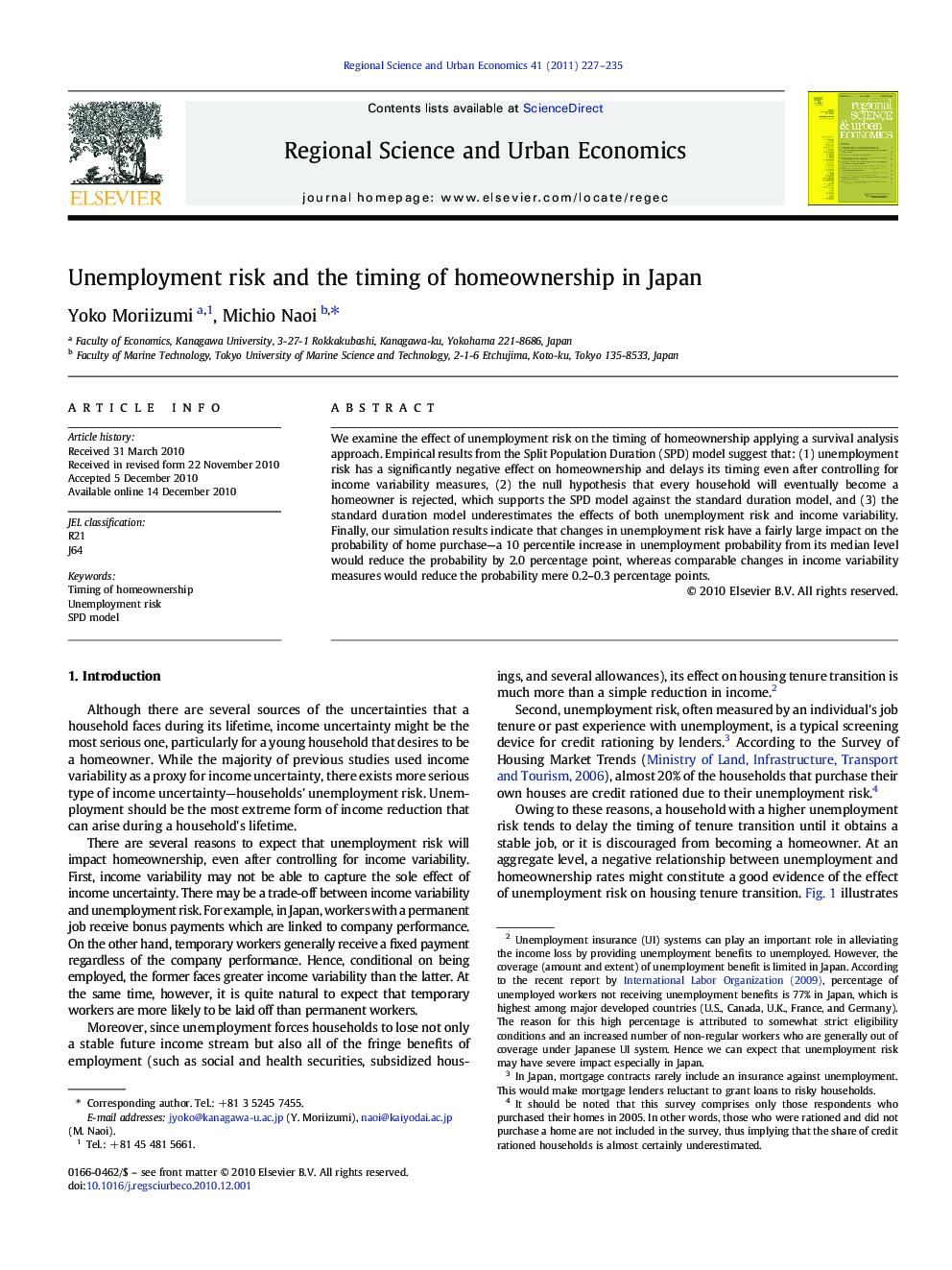| Article ID | Journal | Published Year | Pages | File Type |
|---|---|---|---|---|
| 983406 | Regional Science and Urban Economics | 2011 | 9 Pages |
We examine the effect of unemployment risk on the timing of homeownership applying a survival analysis approach. Empirical results from the Split Population Duration (SPD) model suggest that: (1) unemployment risk has a significantly negative effect on homeownership and delays its timing even after controlling for income variability measures, (2) the null hypothesis that every household will eventually become a homeowner is rejected, which supports the SPD model against the standard duration model, and (3) the standard duration model underestimates the effects of both unemployment risk and income variability. Finally, our simulation results indicate that changes in unemployment risk have a fairly large impact on the probability of home purchase—a 10 percentile increase in unemployment probability from its median level would reduce the probability by 2.0 percentage point, whereas comparable changes in income variability measures would reduce the probability mere 0.2–0.3 percentage points.
